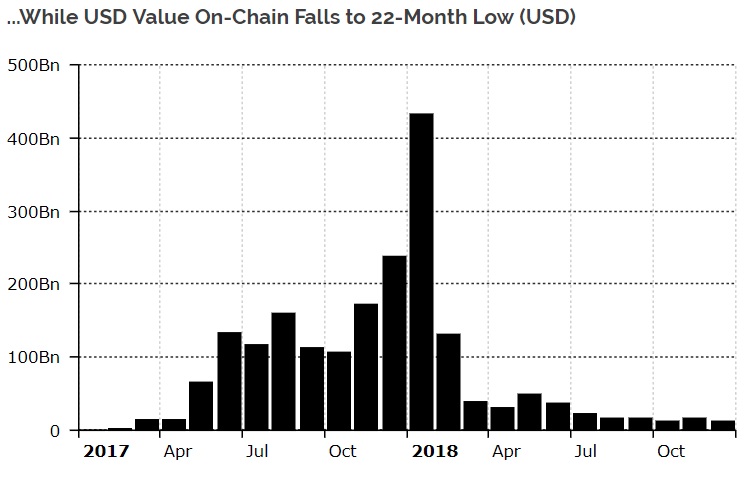
Today, February 28, on block # 7280000 , Constantinople was updated for the second most capitalized Ethereum cryptocurrency.
Network upgrade completed .. so far so good https://t.co/l6vgHb1P51 ?
– Etherscan.io (@etherscan) 28 February 2019 p.
According to EtherNodes , 19.9% of the total number of Geth clients use the new software version. 32.6% of Parity customers also installed the software version compatible with Constantinople. Overall readiness for hard forks was 22.1%. According to Trustnodes , the protocol update went smoothly, without surprises.
Simultaneously with Constantinople in the Ethereum network, the hardfork Petersburg is activated. Its task is to disable the EIP-1283 protocol, in which problems with vulnerabilities such as Reentrancy were identified. It is because of them and the upgrade was canceled in January.
The daily issue volume will now be at the level of 13,400 ETH, the extraction time per unit will be 14 seconds, and the reward for it will be reduced from 3 to 2 ETH (EIP 1234). Ethereum inflation rate will be about 4%.
Constantinople is the second stage of Metropolis hardforka (the first is Byzantium , which lowered the unit award from 5 to 3 ETH). Other changes in the Ethereum network include:
– EIP 145 – improving the efficiency and speed of the blockchain by adding Bitwise switching mechanisms to the Ethereum virtual machine;
– EIP 1052 — Improving network usability for developing smart contracts and simplifying certain operations in Ethereum code.
Among other things, the update optimizes the use of gas in the network and creates the conditions for the activation of the Casper protocol, which will translate Ethereum to a hybrid PoW / PoS consensus algorithm.
Note that the activation of Constantinople was to be held last fall , but each time before the update of the protocol, the developers found different bugs. The final activation date was agreed on January 18th .
Also recall that two weeks before the hardfork Constantinople was discovered a vulnerability , affecting some smart contracts with the possibility of self-destruction.
Follow BlockchainJournal on Twitter !
BlockchainJournal.news
BlockchainJournal.news


